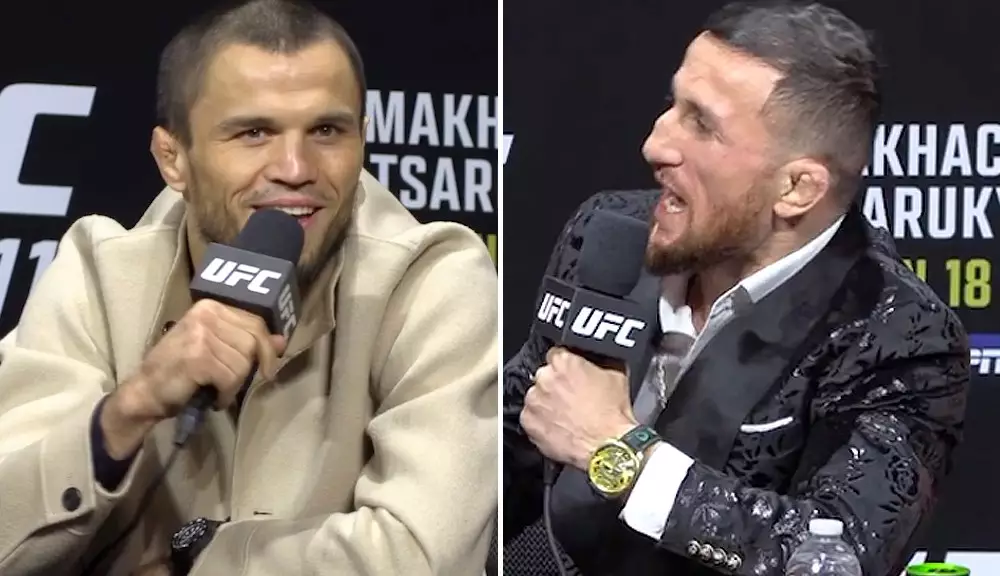The tension in the octagon is palpable as the rivalry between UFC bantamweights Merab Dvalishvili and Umar Nurmagomedov reaches a fever pitch ahead of UFC 311. The co-main event promises not only a breathtaking display of athleticism but also a clash of national identities. Their saga escalated dramatically during a recent pre-fight press conference, where accusations and assertions flew, revealing the underlying tensions that have long existed between Georgia and Russia.
Merab Dvalishvili, entering the fight as the defending champion, was quick to take offense when Nurmagomedov claimed a deeper Georgian identity. Dvalishvili’s response aimed directly at the core of Nurmagomedov’s identity, questioning his legitimate connection to Georgia based on nationality. “That’s another bullsh*t from him,” he proclaimed, asserting that while Nurmagomedov might represent Russia, he does not embody the Georgian spirit. It was an attempt to create doubt about his opponent’s authenticity, asserting territorial pride while underscoring the significance of their backgrounds.
The backdrop of their rivalry is steeped in a fraught historical relationship between Georgia and Russia, marked by territorial disputes and wars spanning over a century. This context transforms their banter from mere pre-fight shenanigans into a complex interplay involving cultural separation and national pride. The Russo-Georgian War of 2008 serves as a somber reminder of the violent culmination of these historical tensions. This rich history extends beyond the personal to encompass their identities as national representatives in the sport, a factor that adds layers to their rivalry.
As the conversation shifted gears toward the fight itself, it became evident that this conflict was about more than just a title bout; it symbolizes a broader struggle for honor and recognition. Nurmagomedov, unfazed, countered Dvalishvili’s assertions by confidently proclaiming his dual heritage from both Dagestan and Russia. His arguments, however, were met with lighthearted skepticism from Dvalishvili, who attempted to distract from the seriousness of the exchange with humor. This interplay between jest and genuine tension illustrates the dual nature of their interactions—a blend of animosity masked by irony.
As the fight date approaches, fans are left to speculate how the intense psychological warfare will impact their performance in the octagon. The battle encapsulates not merely a fight for championship glory but a confrontation of intertwined identities. For Dvalishvili, the stakes could not be higher—not just for his title, but for a platform to assert his Georgian heritage. For Nurmagomedov, it’s equally significant; the fight serves as a chance for him to claim his status and present himself as an authentic representative of not just Dagestan, but also Russia, amid the ongoing Balkanization of national pride in sports.
The UFC 311 match between Dvalishvili and Nurmagomedov is poised to be more than an athletic contest. It represents a clash of pride grounded in deep historical rifts, showcasing how sports often serve as a microcosm for larger national narratives. As the competitors prepare to face off, the world watches, not only for the fight itself but for how their intricate legacies unfold in the spotlight.

